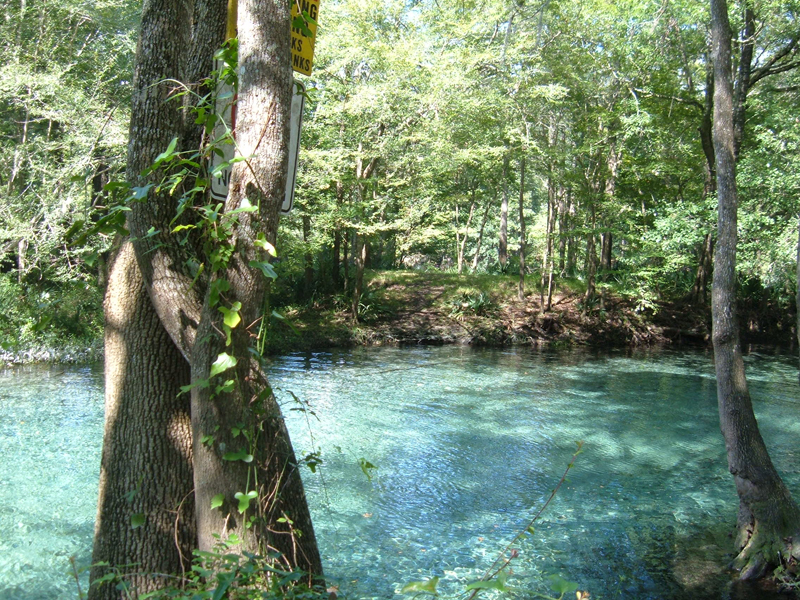
Photograph by Lucinda Faulkner Merritt
Howard T. Odum Florida Springs Institute, Inc.
January 28, 2014
For Immediate Release
Contact: Dr. Bob Knight 352-538-6620
John Thomas, Esq. 727-550-9072
5302 NW 156 Avenue, Gainesville, Florida, 32653
www.floridaspringsinstitute.org
Gainesville—Yesterday Ginnie Springs Outdoors (GSO), owner of the world-renowned dive destination and campground near High Springs Florida, formally demanded the formation of a panel of independent experts to review the science the Suwannee River Water Management District used to set proposed minimum flows and recovery levels for the Lower Santa Fe and Ichetucknee River and Priority Springs. The Howard T. Odum Florida Springs Institute (FSI) applauds the efforts of GSO and its consultants and counsel.
Average spring flow reductions throughout the Suwannee District are already more than 40%, well beyond the tipping point for “significant harm.” More than a year ago FSI developed comprehensive restoration action plans for both the Santa Fe River and the Ichetucknee Springs (www.floridaspringsinstitute.org). But when the State drafted minimum flows and a basin management action plan to improve water quality, FSI’s draft plans were ignored. Instead, the State’s draft minimum flows, recovery plans and action plans for the Lower Santa Fe and Ichetucknee rivers and springs rely on tools that have been failing the springs for decades.
A 2008 groundwater flow model was used in the establishment of protective flow and recovery levels, and the model will be used to evaluate the effects of groundwater pumping on spring flows. But the model has proven to be a highly flawed and inaccurate barometer of harm. Getting the science right is critical to the recovery of protective flows and water quality in these priceless natural resources. GSO’s demand for Independent Scientific Peer Review is intended to ensure that these tools are examined by outside experts and abandoned in favor of more effective methods if proven to be deficient.
“We have tried to talk with the District and tried to work with the District,” says Mark Wray of Ginnie Springs Outdoors. “Our goal remains to help make sure the agencies get these minimum flows and recovery strategies right. The springs depend on it. We can’t just sit back knowing the models are wrong while withdrawals are reducing flow so much that one spring after another is losing its natural flow of high clarity water, losing its aquatic plants, and becoming polluted and choked with algae.”
Read other documents related to this demand for an independent peer review on the Alliance’s website at:
http://ichetuckneealliance.org/minimum-flows-and-levels-mfls/
